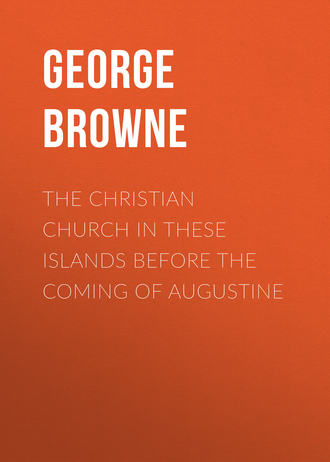The Christian Church in These Islands before the Coming of Augustine
 полная версия
полная версияThe Christian Church in These Islands before the Coming of Augustine
Жанр: историческая литературазарубежная классиказарубежная старинная литературасерьезное чтениеоб истории серьезно
Язык: Английский
Год издания: 2017
Добавлена:
Настройки чтения
Размер шрифта
Высота строк
Поля

